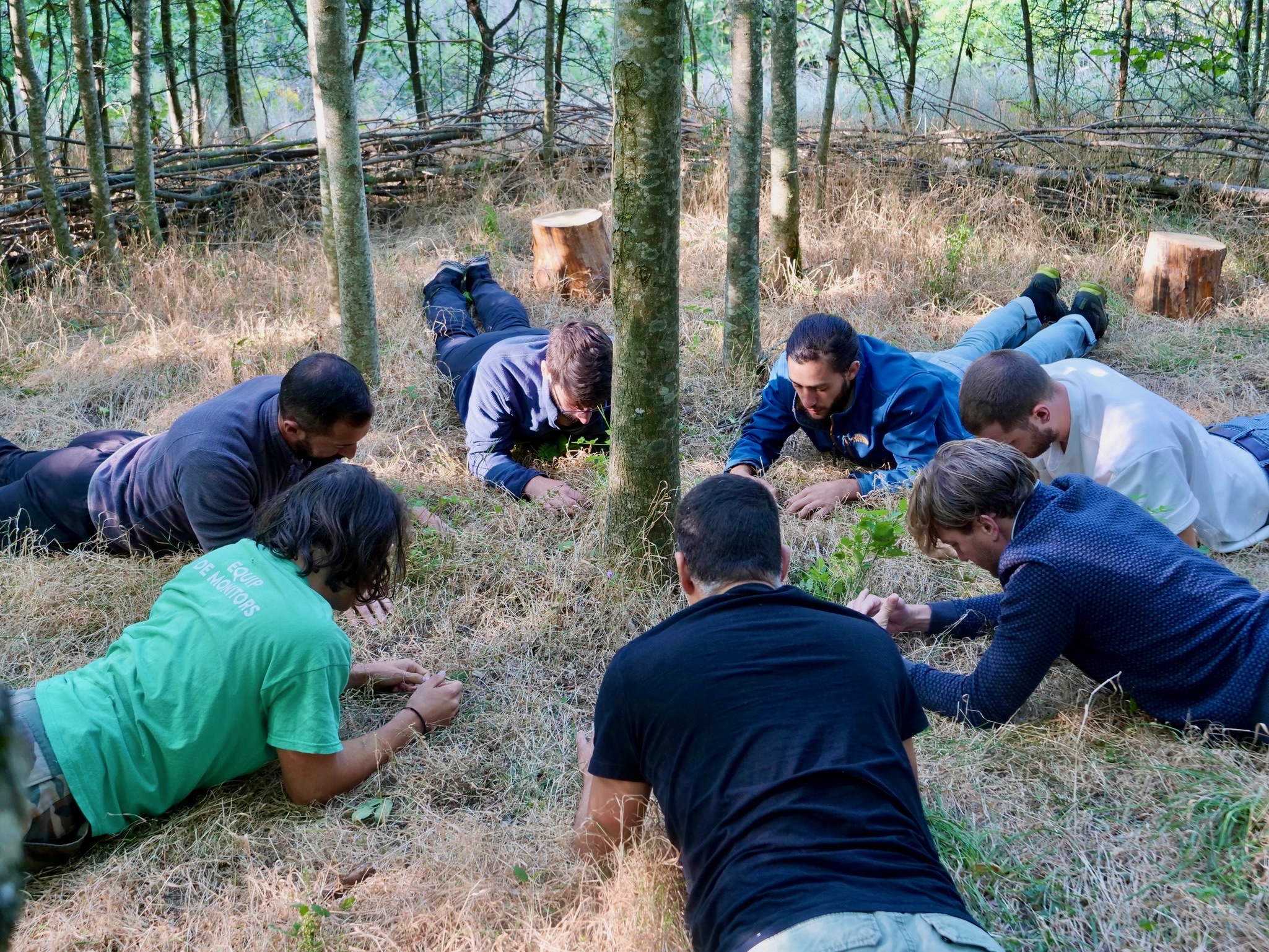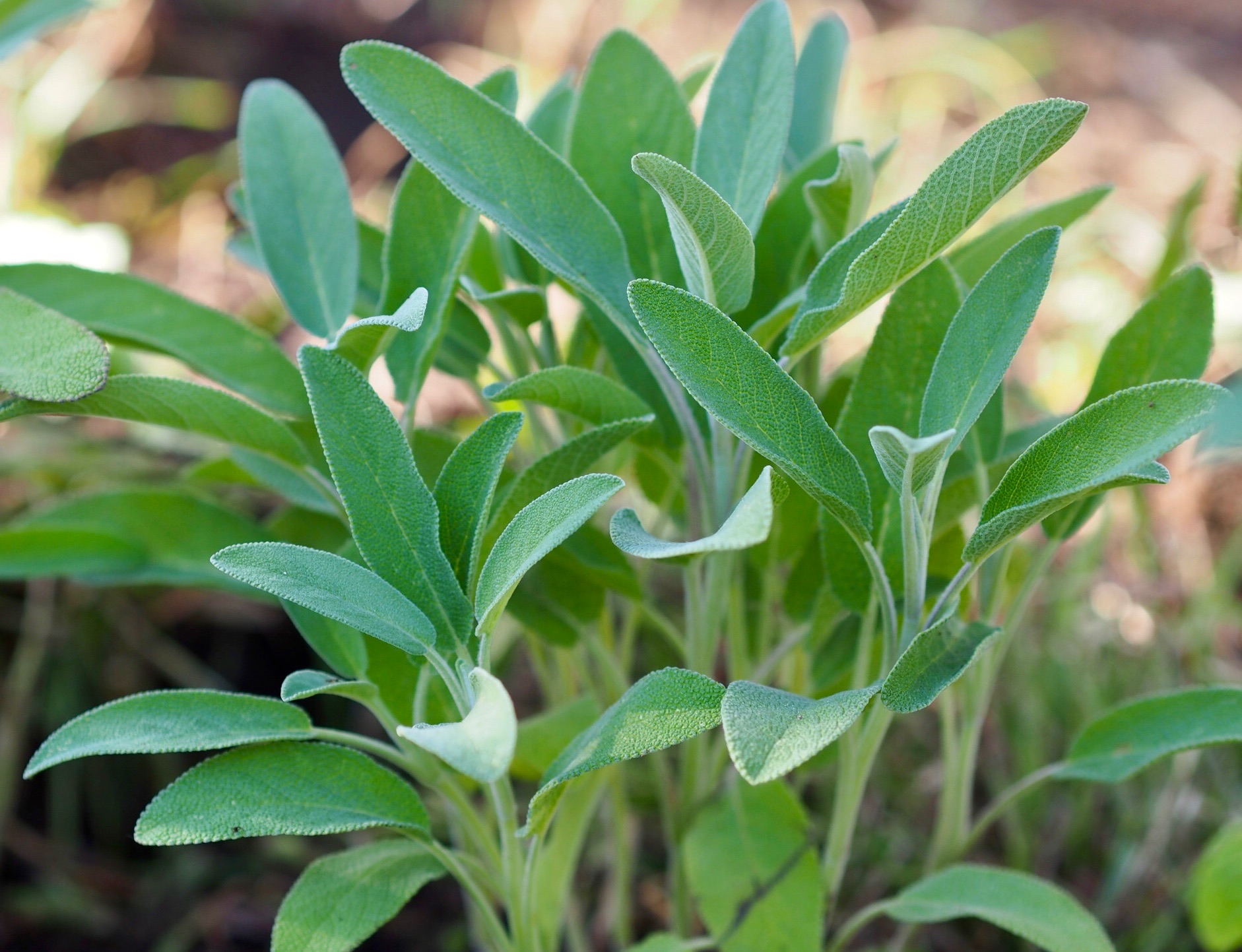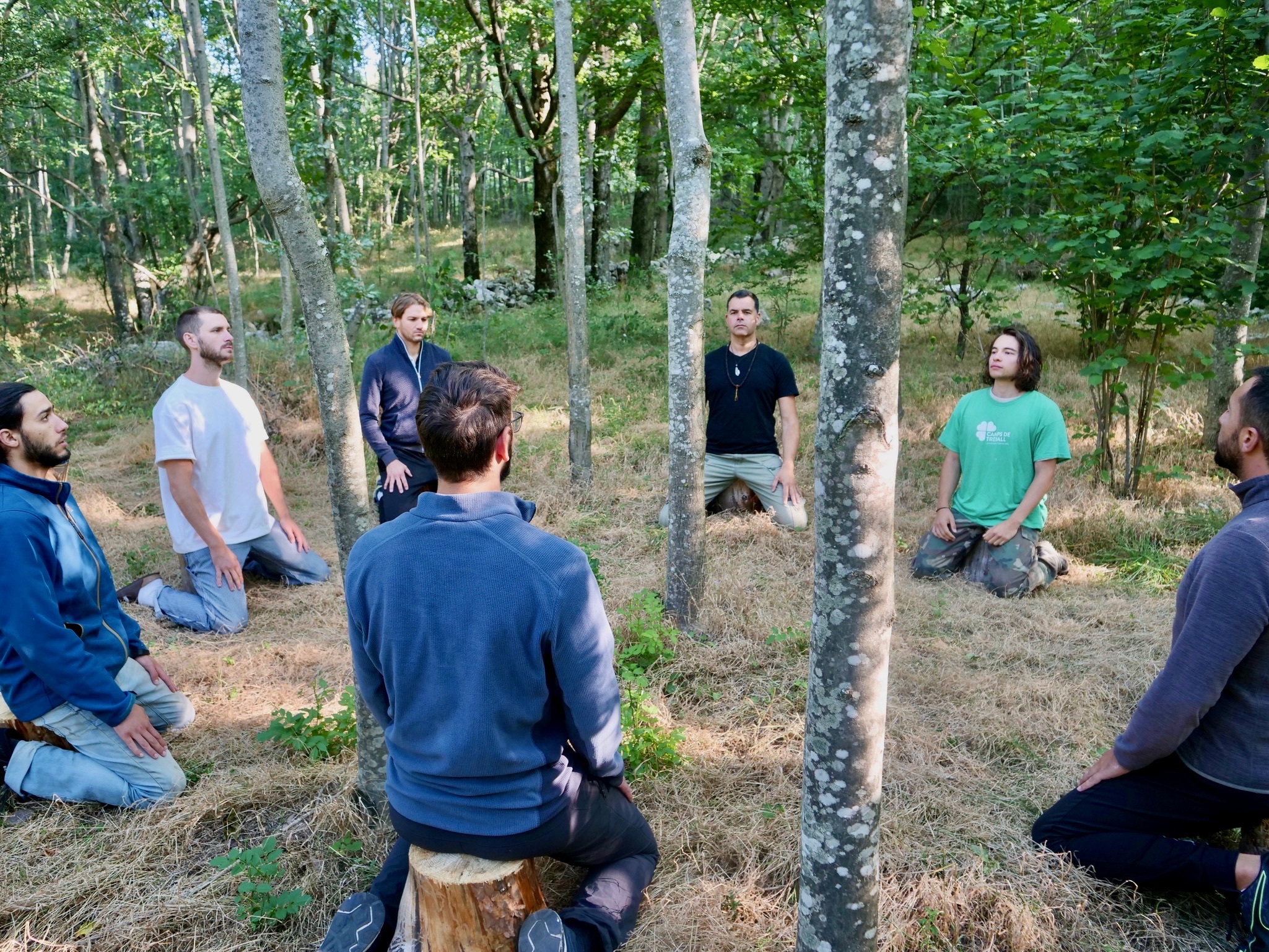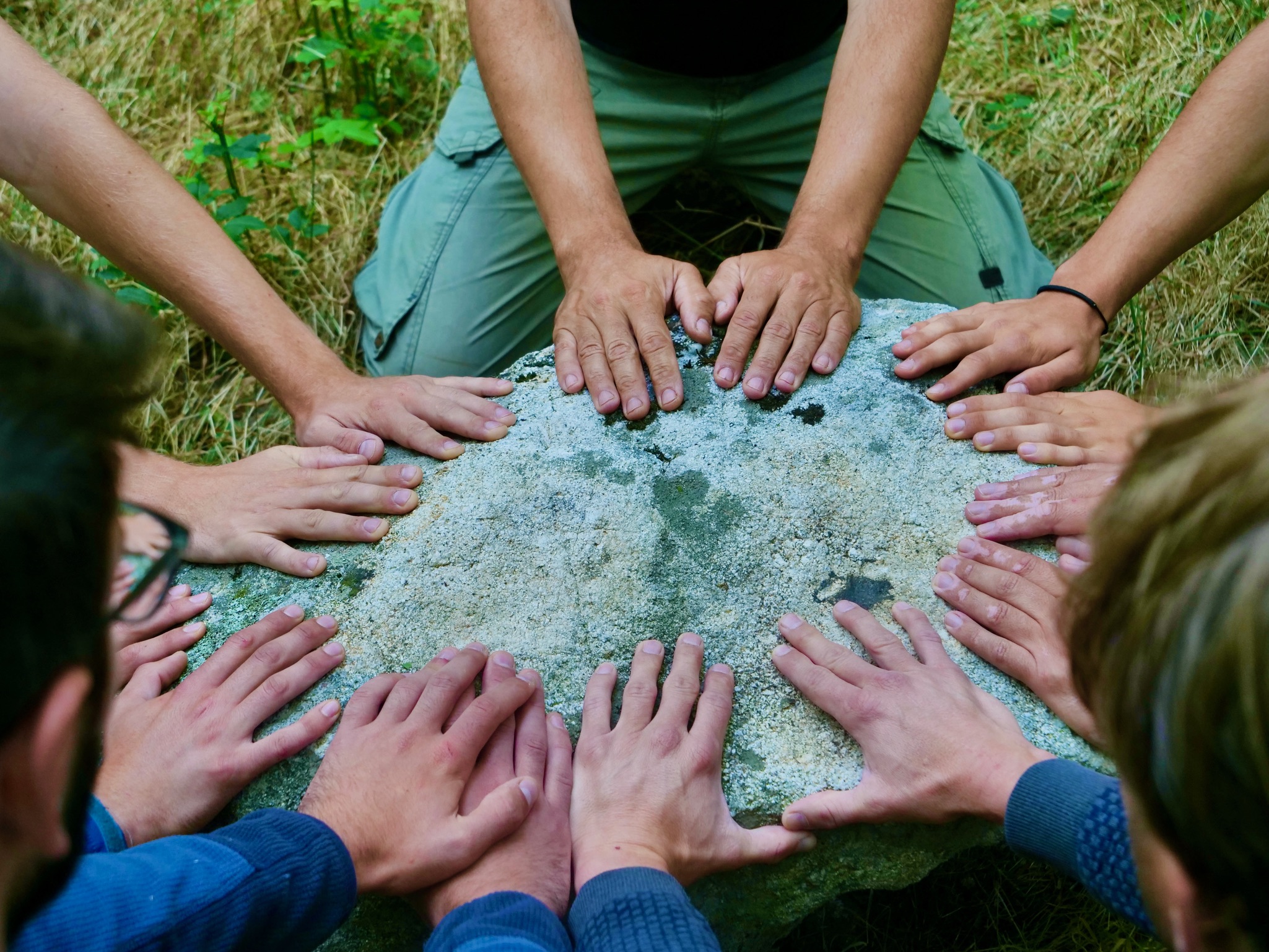Our four principals:
One: Respect the inner nature to the same extent as the nature outside ourselves
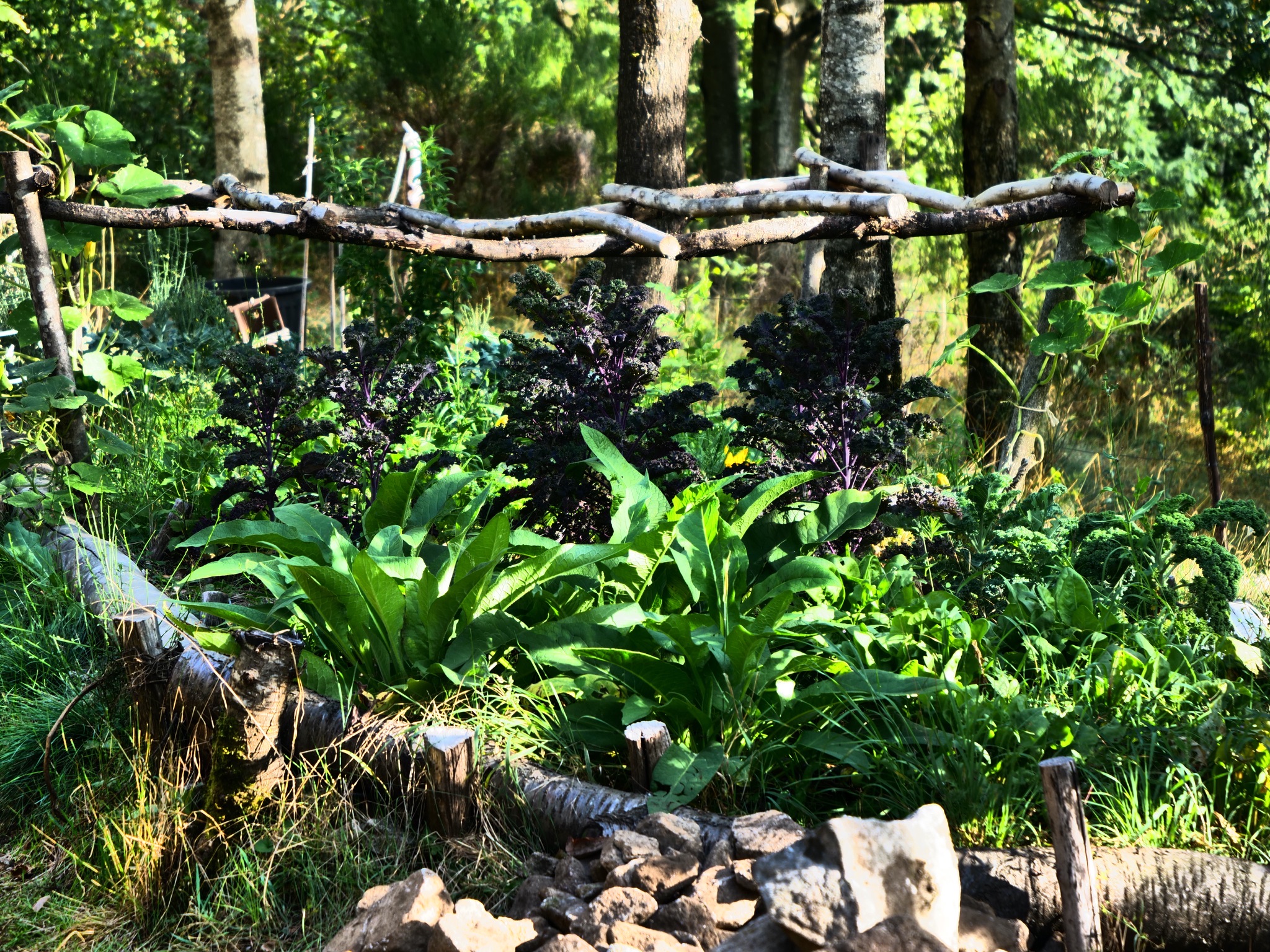
We are part of nature and so is our psyche. We often distinguish nature from our inner self. But that's an illusion. My skin is connected to the air around it and my eyes are inseparable from what I see. It is critical for true resilience that we experience this relationship. The health of the planet depends on our personal health and vice versa. We have come to see that natural places and their inhabitants are not just there to serve people, but that nature has intrinsic rights that we have to respect. The needs of the planet are the needs of the person. The rights of the person are the rights of the planet. If we don't act like this, not only nature will be at great risk, but so will we.
Two: Come home to your inner nature - sense of belonging.
We seem to have disconnected completely from our local environment. Our food comes from all over the world, we travel 'cheap' to faraway places and get news from around the world in our hands as it happens. We are everywhere and nowhere at the same time. Reconnecting with where we live, getting to know the people in our immediate vicinity and knowing what lives and grows locally in the surrounding nature can help us reconnect with everyday reality. Feeling responsible for the well-being of our immediate environment also makes us more able to imagine what effect we may have on distant areas.
